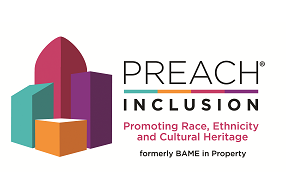I was recently asked at a panel event how to juggle being a mother to small children while being an active and present chief operating officer. The truth is, I’m not entirely sure.

There is no silver bullet to balancing caring responsibilities with career progression and what the ‘right balance’ looks like will be very different for everyone. For me, keeping my foot in the door and staying in employment – without having any plans to progress or be promoted at the most demanding points of my children’s younger years – meant that I could stay tuned in to the industry’s movements, while fulfilling my motherhood duties. However, this might not work for everyone.
Ultimately, it is our responsibility as employers to make this decision-making process as smooth as possible to ensure that gender never acts as a barrier to someone’s success or progression.
The ‘Embrace Equity’ theme for 2023’s International Women’s Day inspired several of the workplace policies and commitments Argyll introduced last year and has the potential to continue to move the dial on achieving gender diversity across the property sector. By focusing on achieving equity instead of equality, the sector can confront and acknowledge the barriers women in the workplace face compared to men, defeating systemic bias and individual circumstance to level the playing field.
The gender pay gap persists
It might not be surprising to anyone that the property industry still faces significant barriers to achieving gender diversity. According to Statista data from 2022, the finance and insurance sector faces the widest gender pay gap at a shocking 31.2%. Meanwhile, construction and real estate also sit above the UK average, at 15.8% and 14.6% respectively and, according to MSCI data, gender-equal boardrooms will not be a reality until 2038.
The latest PwC women in work index laid bare some of the stark inequalities that persist for women at work. For example, in the UK, the gender pay gap widened four times more than the Organisation for Economic Co-operation and Development average increase, and the UK fell five places to 14th out of 33 OECD countries for the Index from 2020-21. This fall in the UK’s position accompanied a widening of the gender pay gap, which is now at 14.3%.
As identified in PwC’s report, the ‘motherhood penalty,’ defined as the ‘loss in lifetime earnings experienced by women raising children’, is now the most significant driver of the gender pay gap. Rising costs of childcare, and persistent assumptions of gender roles, perpetuate existing barriers to women fulfilling their potential in leadership positions.
Moving the dial
When adopting an approach driven by equity instead of equality, digging into exactly what barriers or limitations employees face is key. Channelling equity into workplace policy requires a tailored and bespoke approach. Supportive and flexible working policies that prevent individual circumstances from threatening career progression can pay dividends in fostering a diverse and committed workforce.
Training and development opportunities are also key to filling skills gaps and fostering mobility. While women are now better represented in the real estate workforce, barriers to progression and reaching senior leadership positions persist.
Flexible working is, happily, something many companies have continued to embrace post-pandemic, with many companies realising that flexible working hours can be critical in helping staff fulfil caring duties around their working day.
Supporting women through menopause and pregnancy is another way to ensure a committed workforce where the potential impact of women’s reproductive health issues on their performance are considered and mitigated. Paid leave for fertility appointments, progressive parental leave policy and funded treatment options are all worth consideration.
Equity in the recruitment process is also critical, and I’ve found prioritising potential and personality over professional experience has helped foster a more diverse and successful workforce. With the right training opportunities, offering an entry point to the industry to those without professional backgrounds truly has the potential to foster diversity in the industry.
Looking ahead
It has been heartening to see several government policies and new legislation introduced since the pandemic to mandate flexible working options and introduce protections for employees facing infertility, pregnancy complications or the menopause.
Issues such as the ‘motherhood penalty’ and women’s health are finally being taken seriously. While legislation is important, it is workplace culture that can foster the supportive environment needed to ensure that every individual, in every industry, can thrive. Rather than trying to put sticking plasters on stubborn inequalities, by channelling equity into workplace policy and culture, we can continue to drive progress and build on the great strides that have already been made towards gender parity in the industry.
Emily Smith is chief operating officer at Argyll





























No comments yet